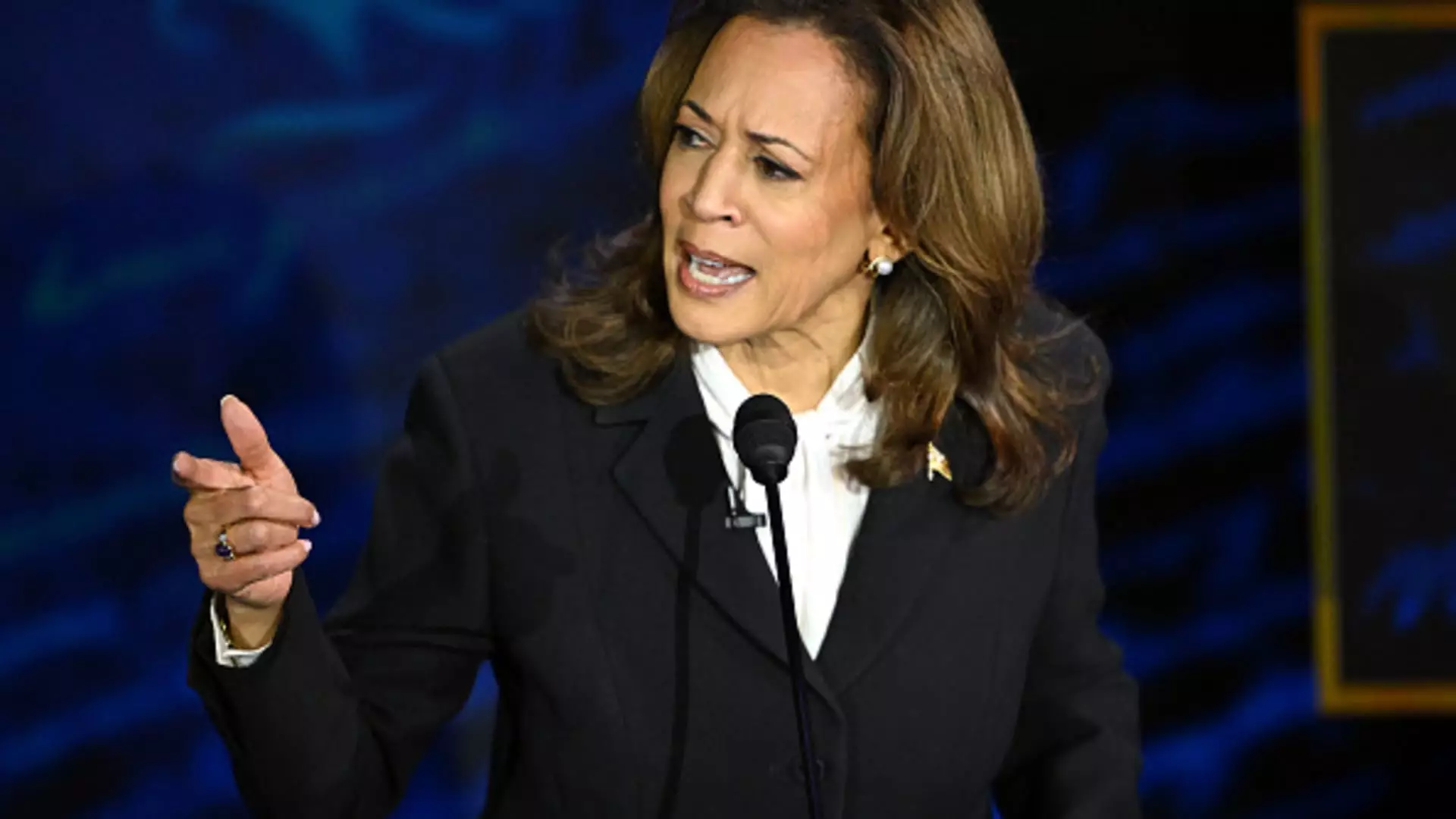During the recent presidential debate hosted by ABC News, Donald Trump stood by his decision to increase trade duties on China. He defended his plans to implement blanket tariffs ranging from 10% to 20% and additional tariffs of 60% to 100%. Trump emphasized that other countries would finally have to pay back for all the years of supposed exploitation by the United States. He boasted about the billions of dollars his administration had collected from China through these tariffs. Trump further criticized the Biden-Harris administration for maintaining most of his tariffs, claiming they were afraid to lift them due to the financial repercussions.
In response to Trump’s aggressive stance on China, Kamala Harris took the opportunity to criticize the former president during the debate. She accused the Trump administration of weakness in dealing with China and creating a significant trade deficit. Harris pointed out that Trump’s policies had led to selling American chips to China, potentially aiding in the modernization of their military. She argued that instead of helping China, the focus should have been on ensuring that the United States remains competitive in the 21st century. Harris emphasized the importance of investing in American-based technology and supporting the American workforce to stay ahead in areas like AI and quantum computing.
One of the key points of contention between Trump and Harris was the potential impact of tariff policies on consumers. Trump downplayed concerns about increased prices for consumers, suggesting that China and other countries benefiting from the American market would shoulder the burden. On the other hand, Harris highlighted the risks associated with escalating trade tensions and the possibility of a negative impact on American consumers. The debate shed light on the differing perspectives on how tariffs could affect everyday Americans.
Moving forward, economists and policy experts have speculated on the potential economic strategies of both Trump and Harris regarding China. Trump’s approach is expected to continue focusing on heavy trade tariffs, aiming to pressure China into making concessions. In contrast, Harris is predicted to adopt a more targeted approach, working in coordination with U.S. allies to address specific issues related to trade and national security. The debate highlighted the differing philosophies on how to best engage with China on economic matters.
The clash between Donald Trump and Kamala Harris on China policy during the presidential debate showcased contrasting views on how to handle the economic relationship between the United States and China. While Trump advocated for aggressive tariff policies as a means to extract concessions from China, Harris emphasized the importance of strategic alliances and investments in American technology to secure the country’s competitiveness. The debate underscored the complexities of managing a key global relationship like that between the U.S. and China and raised crucial questions about the long-term economic interests of the United States.

Leave a Reply